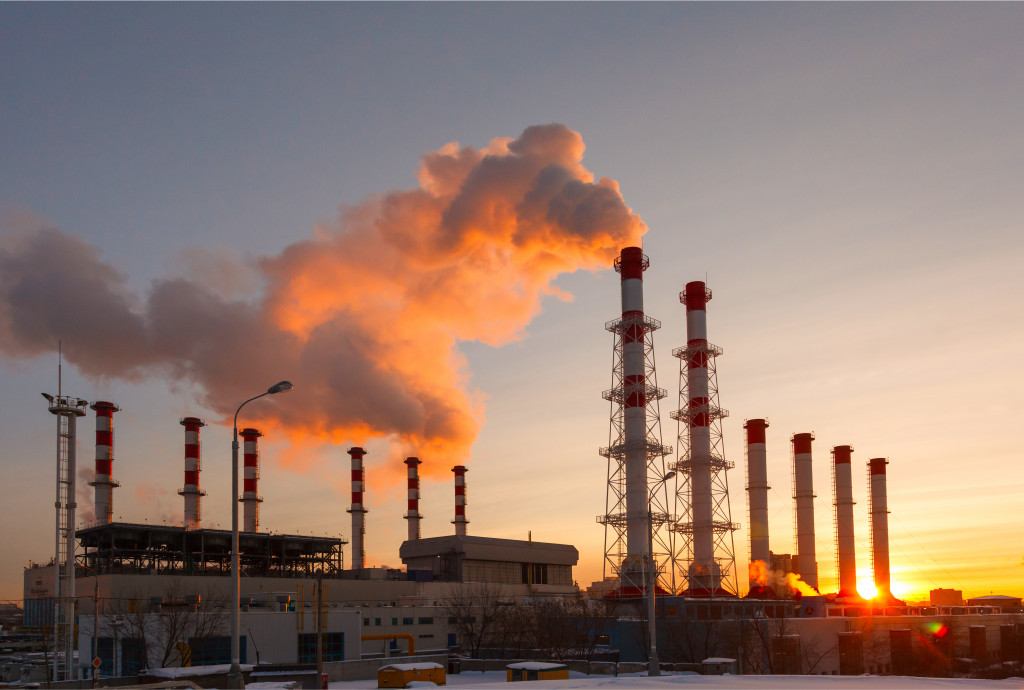You might not realize it, but the air inside your home can be just as polluted as the air outside. In fact, according to the EPA, indoor air can be more polluted than outdoor air. That’s why it’s essential to be aware of the potential sources of indoor air pollution and take steps to reduce them. Here’s what you need to know about air pollution and your home.
Potential Sources of Indoor Air Pollution
Several potential sources of indoor air pollution include combustion appliances, building materials, cleaning products, and pesticides. Combustion appliances like furnaces and wood stoves can release pollutants like carbon monoxide and particulate matter into the air. Building materials like asbestos and lead paint can also remove contaminants over time. These can lead to lung cancer and, in some instances, death. Cleaning products and pesticides can release harmful chemicals into the air.
How Can Air Pollution Affect Your Home?
Air pollution can affect every aspect of home life. It can lead to corrosion, deteriorating family health, and more. Here are the different ways air pollution can affect your home.
Health Problems
Exposure to pollutants in the air can cause several health problems, including respiratory infections, asthma attacks, and even cancer. Children, the elderly, and people with chronic health conditions are especially vulnerable to the effects of air pollution. That’s why reducing indoor air pollution in your home is essential.

Corrosion
Corrosion is the process of deterioration due to a reaction with oxygen. When metals corrode, they oxidize and break down. This process is accelerated by air pollution, which contains harmful chemicals like sulfur dioxide and nitrogen oxide. These chemicals can speed up the corrosion process, causing damage to metal surfaces like gutters, pipes, and roofs. If left unchecked, corrosion can cause severe structural damage to your home. This can be common if you’re living near industrial compounds. However, smoke from vehicles can also lead to corrosion.
Discolor Paint and Siding
Paint and siding are designed to protect your home from the elements, but they can’t withstand constant exposure to air pollution. Over time, the harmful chemicals in air pollution will cause paint to fade and discolor. Siding may also become stained or faded due to air pollution. If you live in an area with high levels of air pollution, it’s essential to clean your home’s exterior regularly to prevent long-term damage.
Reducing Indoor Air Pollution
Fortunately, there are several things you can do to reduce indoor air pollution in your home. Here are some ways you can reduce this problem inside your home.
HVAC Services
Your HVAC can save your life, given that you maintain them properly. However, HVAC maintenance requires you to get them serviced regularly. This is because HVAC systems can be a significant source of pollution in your home. Thankfully, there are cheap services that can do this for you. Companies like Platinum Mechanical Heating & Air Conditioning offer maintenance services for air ducts and furnaces. These professional HVAC maintenance companies also provide routine inspections to ensure your heating system works as intended.
Cleaning Products
Instead of using toxic cleaning products, opt for natural alternatives like baking soda, vinegar, or lemon juice. You can even make your cleaning solutions with ingredients you already have in your home. These natural products are typically safe, effective alternatives to harsh chemicals.
Pest Control
Pesticides can contain harmful toxins that adversely affect human health and the environment. If you’re trying to reduce air pollution in your home, it’s a good idea to stop using pesticides whenever possible. Instead of using pesticides to eliminate pests, look for natural alternatives like traps and sprays. Opt for professional pest control services instead of chemical products if you have a severe infestation that can’t be dealt with naturally.
Vacuum Regularly
In addition to cleaning your floors regularly, you should also vacuum often. Use a HEPA filter vacuum if possible to prevent the release of harmful allergens and pollutants into the air while vacuuming. This can help keep your home clean and reduce the indoor air pollution you encounter daily.
Air Purifiers
Finally, consider investing in an air purifier to help keep the air in your home clean and safe. Air purifiers work by trapping pollutants like smoke and dust to improve indoor air quality. Different types of air purifiers are available depending on your needs, so choosing a model that works for you is crucial.
Indoor air pollution is a severe problem that can harm your health. But there are things you can do to reduce it. By taking steps to ventilate your home and minimize exposure to pollutants, you can help improve the air quality in your home and protect your family’s health.

